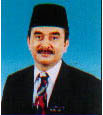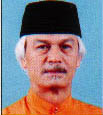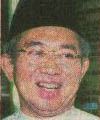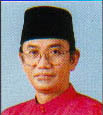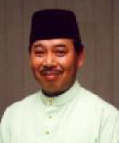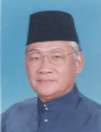 |
 |
 |
| National IDIOTS TEAM |
| Malaysia forms panel to handle misreporting in foreign media The Malaysian government says it will set up a committee to handle inaccurate reports about the country in the foreign media. The Information Minister Khalil Yaakob, says many foreign media have pre-conceived ideas about Malaysia and look at the country with envy and "misrepresent facts without finding out the true situation." He was quoted by the national Bernama news agency as saying Malaysia wants to focus on matters which have been deliberately misreported. He says the panel, to be jointly set-up by the information and foreign ministries, will meet next week. The move follows a complaint by Prime Minister Mahathir Mohamad on Thursday that the Asiaweek news magazine deliberately used a cover photograph of him which made him look like an idiot. |
 |
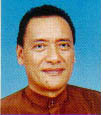 |
 |
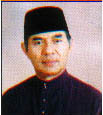 |
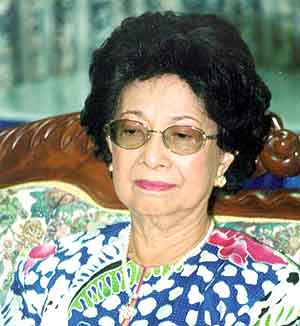 |
| CRIMINALS, LIARS, AND THIEVES |
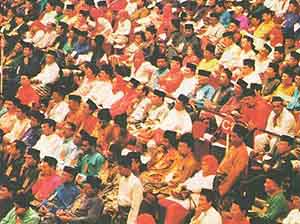 |
| SUPPORTED BY PARASITES |
| Ministers Explain: Why Our Corruption Benefits You KUALA LUMPUR, 18 NOV (New Shit Times) - Four of Prime Minister Mahathir's most corrupt Cabinet Ministers, Tun Daim Zainuddin, Datuk Seri Ling Liong Sik, Datuk Samy Vellu and Datin Paduka Rafidah Aziz, today held a joint press conference to explain why their corruption was in the public interest. Daim began by describing corruption as a unifying bond within the Malaysian Cabinet. "There is no doubt that we are, all of us, united in corruption. Surely the public does not want to see a disunited Cabinet because then, the whole country will descend into chaos." Daim explained that it was only because of corruption that Malays, Chinese and Indians within the highest levels of government could lay aside their differences and work together. To illustrate the point, the four of them linked arms throughout the duration of the conference. Ling Liong Sik pointed out that the four of them had become role models for what it was possible to achieve just with the right connections: palatial mansions, luxury cars, private jets and bottomless bank accounts. He added that the youth of the country needed high targets as a spur to achievements. To this, Samy Vellu agreed, saying that poor estate workers looked up to him as the epitome of success. "To them, I'm taller than a tall palm tree. And with good reason too," he added. Rafidah Aziz chipped in, describing herself as, 'a towering beacon of inspiration for all Malaysian women." Daim compared themselves favourably with the sacked Deputy PM, Anwar Ibrahim who, because he was corruption-free, lived in a small house and drove an old car. "Such a person wouldn't give anyone dreams," he said scornfully. "People without dreams live without hope. And people without hope generally die. So, if we are all to be like Anwar, most Malaysians would soon be dead." According to Daim, Abdul Murad's recent affidavit alleging that Anwar was corrupt like themselves was "sheer nonsense" and no more than "a plot orchestrated by Anwar's supporters so as to salvage their leader's pathetic reputation." Daim exposed the fact that Anwar was incredibly simple-minded when it came to money. "You could put a million dollars on his desk and he wouldn't even touch it!" He also scoffed at Murad's allegation that Anwar had stolen RM3 billion, adding that, "The man isn't even capable of stealing one ringgit, let alone three billion. I tell you, as a Finance Minister, he was most unprofessional." Daim reminded reporters that he himself, twice the nation's Finance Minister, had stolen no less than RM2 billion of the country's money. "It's a pretty hard act to follow," he said proudly. Daim continued: "It's true that RM2 billion can build a lot of low-cost housing, but who would want to live in such houses? They are just boxes, unfit even for dogs, let alone humans. Hence, by stealing the money, I have saved countless families from a fate worse than death." Samy Vellu, also the Works Minister, said, "While my tidy pile of ill-gotten gains could have gone into building hundreds of kilometres of roads, what for? More roads mean more accidents. Hence, my corruption has already saved many Malaysian lives." Continuing the same theme, Ling Liong Sik explained that while the billions he and his son had misappropriated could have gone into helping pig farmers ruined by the Nipah virus, these good-for-nothing people would only have wasted the financial assistance on gambling, drinking and womanising. "I base my conclusion on the fact that pig farmers inevitably become like the hogs they look after. As a result, my corruption has already saved many Chinese families from breakup." Not to be outdone, Rafidah Aziz observed: "While the dirt money in my bank account could be used to electrify a lot of villages, that would only increase the incidence of electrocution among rural folks. Now, we don't want to see dead bodies all over our countryside do we?" Having already served the nation so well, the four Cabinet Ministers promised to indulge in even more corrupt practices should Barisan Nasional be returned with a two-third majority in the next elections. "Someone's got to do it. After all, it's all for the public good," they chorused. They ended the conference by kneeling down before a picture of Mahathir who they revere as their patron saint of corruption. After the conference, it was discovered that all four had stolen the microphones into which they had spoken. Seachange Malaysia |
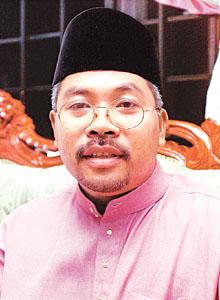 |
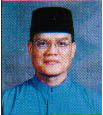 |
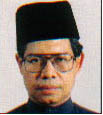 |
 |
| Malaysia censor says "problem" articles may have delayed news mags KUALA LUMPUR, March 1 (AFP) - The delay by Malaysian government censors in authorising the sale of foreign news magazines could be due to "problems" with their articles, a senior official said Thursday. Local distributors said it was believed to be the first time for years that the Control of Publications and Film Division, which routinely inspects imported news magazines, had held up sales. The latest editions of Asiaweek and the Far Eastern Economic Review, which normally go on sale on Saturday, had not been cleared for sale in Malaysia as of Thursday afternoon. The Economist, which also normally goes on sale Saturday, was cleared only Wednesday morning. The Control of Publications and Film Division is still examining the contents of the magazines being held up, its assistant undersecretary Tengku Mahmood Tengku Ismail told AFP. He said he expects them to be released by Friday. "It is a customary procedure for us to vet through the contents of the magazines. The delay could be due to some problems with the contents." He declined to give details of the problems but added: "We have to bear in mind national interest." The control of publications division is part of the home ministry. Tengku Mahmood declined to comment when asked if this was a political decision. Asiaweek's March 2 issue, as seen on the Internet, carries a report of links between unidentified Malaysian businessmen and Islamic separatists in the southern Philippines. The Far Eastern Economic Review's web edition has a report on opposition to Prime Minsiter Mahathir Mohamad from within his ruling party. The Economist has no articles on Malaysia this week. Mahathir's government has for years fiercely criticised the Western media for alleged biased and inaccurate reporting but made no overt moves to suppress its operations or to control sales. The latest round of attacks began February 1 when Mahathir accused Asiaweek of deliberately using a cover photograph of him which makes him look like "an idiot." The photo accompanied an interview with the veteran premier. Mahathir did not say that he had been misquoted. Three days later the government announced it would set up a committee to handle what it called inaccurate reports in the foreign media. Asiaweek sells more than 25,000 copies in Malaysia, its largest sales in any country. The locally-owned media are subject to a number of legal restraints, including the need to apply for an annual publication licence. |
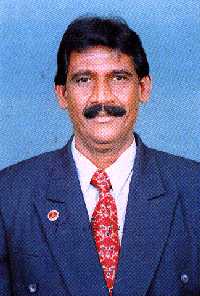 |
 |













